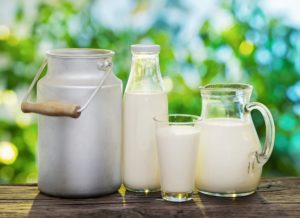 Print this Article
Print this Article

Notes from a Parasha & Halacha Shiur on Parashat Shemot by Rabbi Yehoshua Sova
In our Parasha, Batya, daughter of Pharaoh, finds Moshe and asks his sister whether she should fetch an Egyptian nursemaid for him, to which the sister refuses. The Midrash writes that the reason she refused was because Moshe Rabbenu would grow up and speak to the Shechina, and it is inappropriate that he nurses from a non-Jewish source.
Nevertheless, Maran writes that since we must always be concerned with a child’s physical wellbeing, we shouldn’t prevent him from drinking or eating what he needs. Still, the Gemara in Sanhedrin writes that eating non-kosher can cause someone to have an impure nature.
[The Maharsha even writes that it may implant murderous tendencies in the person, perhaps because eating something as a predator is murderous behavior unless it is done in the proper way, in which case it bring purity and holiness.]
The Rishonim discuss why nursing from non-Jewish milk should be avoided. The Ritva says that since the food that the nurse consumes is non-kosher it transfers over to the child. However, the Rashba and the Meiri write that it is the person who is the source of the milk that is a problem. This would explain the story in the Talmud in which Rabbenu HaKadosh, author of the Mishna, and Antoninus, the Roman emperor, were switched when they were babies for a bit. Baby Antoninus nursed from the mother of Rabbenu HaKadosh, and he grew up to become close to Torah, study with Rabbenu HaKadosh and eventually convert. This, according to the Rashba and Meiri, can be attributed to his nursing from a holy person.
The Halachic difference between these two opinions is if a non-Jewish nurse would only eat kosher. According to the Ritva that would not be a problem, however, according to the Ritva and the Meiri it would still be a problem. Similarly, if a Jewish woman does not keep kosher rch”l, according to the Ritva that would be a problem and not according to the Rashba and the Meiri.
The Helkat Yaakov writes, based on the Rashba and the Meiri, writes that one shouldn’t receive a blood transfusion from an improper source (if possible).
The Ohel Moshe writes in the name of Rav Shach, that although the story about Moshe Rabbenu should be an exception because he was destined to become the greatest prophet, nevertheless, we should treat every child as though he is destined for the greatest heights.
Hacham Ovadia writes, that one who forgot that they just ate meat, and mistakenly made a Beracha on a dairy item, may take a small bite or sip of it so that the Beracha shouldn’t be in vain, since the item is not intrinsically not kosher.